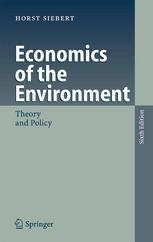

Most ebook files are in PDF format, so you can easily read them using various software such as Foxit Reader or directly on the Google Chrome browser.
Some ebook files are released by publishers in other formats such as .awz, .mobi, .epub, .fb2, etc. You may need to install specific software to read these formats on mobile/PC, such as Calibre.
Please read the tutorial at this link: https://ebookbell.com/faq
We offer FREE conversion to the popular formats you request; however, this may take some time. Therefore, right after payment, please email us, and we will try to provide the service as quickly as possible.
For some exceptional file formats or broken links (if any), please refrain from opening any disputes. Instead, email us first, and we will try to assist within a maximum of 6 hours.
EbookBell Team

4.0
46 reviewsThe book interprets nature and the environment as a scarce resource. It offers a theoretical study of the allocation problem and describes different policy approaches to the environmental problem. The entire spectrum of the allocation issue is studied: the use of the environment in a static context, international and trade aspects of environmental allocation, the regional dimension, environmental use over time and under uncertainty. The book incorporates a variety of economic approaches, including neoclassical analysis, the public goods approach and optimization theory. The different aspects of environmental allocation are studied in the context of a model that is used throughout the book. The sixth edition has been enlarged and revised to integrate recent literature. Among others, new sections have been added on ethical aspects of environmental evaluation, pollution and endogenous growth, the implementation of the Kyoto Protocol, international and European Union emission trading and biodiversity.